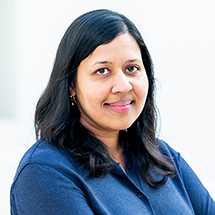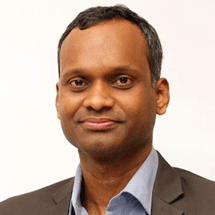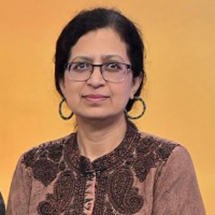
Research Director & Group leader, Paris Brain Institute (ICM), Paris, France
Dr. Stéphanie Baulac co-leads the Genetics and Pathophysiology of Epilepsy team at the Paris Brain Institute. Her research focuses on somatic mutations and cortical malformations in focal epilepsy, especially involving the mTOR pathway. Using human brain tissues, brain organoids, and mouse models, her lab seeks to identify causative genes and mechanisms behind neurodevelopmental epilepsies. She leads the iGenSeq platform and applies translational strategies to develop targeted therapies. A recipient of the ERC Consolidator Grant and Michael Prize in Epileptology, Baulac’s work is instrumental in decoding the genetic and cellular basis of epileptic brain disorders.

Professor of Behavioural Neuroscience, Department of Psychology, University of Cambridge, UK
Dr. David Belin investigates the neurobiology of impulsive and compulsive disorders, including addiction, OCD, and Tourette’s syndrome. He focuses on how abnormal plasticity in corticostriatal circuits drives maladaptive habits. His lab studies how the amygdalo-insular network influences behavior via prefrontal and striatal pathways. Using tools like optogenetics, DREADDs, and electrophysiology, his research spans molecular to behavioral levels with strong translational aims. Key projects examine environmental factors, cellular mechanisms, and brain circuit dynamics underlying vulnerability to compulsive behaviors. Belin’s integrative approach advances understanding of how neural systems contribute to mental health disorders and behavioral pathology.

Professor, Brain and Cognitive Sciences, MIT; Director, K. Lisa Yang ICoN Center, MIT; Associate Investigator, MIT McGovern Institute, Massachusetts, USA
Dr. Ila Fiete is a Professor at MIT and Director of the K. Lisa Yang ICoN Center. She studies neural coding and brain dynamics using theoretical and computational models. Her lab explores how the brain represents and manipulates information for learning, memory, and spatial navigation. By applying tools from physics, math, and machine learning, she reveals the principles governing neural computations. Her work includes modeling memory architectures and identifying geometric structures in neural activity. Recognized with awards like the Swartz Prize and HHMI Faculty Scholar Award, Fiete’s research bridges neuroscience and computation to uncover how cognition emerges from neural circuits.

Professor School of Medicine, Deakin University, Victoria, Australia
Dr. Jee Hyun Kim studies the neurobiology of fear, anxiety, and addiction using rodent models to mirror human behaviors. Her research shows that fear memories form and are retrieved differently across developmental stages, and that early-life memories may be more easily erased. She investigates anxiety through fear conditioning and addiction via operant conditioning models. A major focus is extinction learning, the basis for exposure therapies in anxiety and substance use disorders. With over 70 publications and 2,700+ citations, Kim’s work sheds light on how memory mechanisms can guide treatments for mental health challenges in youth and adolescence.

Professor, Electrical Engineering, Indian Institute of Technology (Madras), Chennai, India
Dr. Mohanasankar Sivaprakasam is a Professor at IIT Madras and leads the Healthcare Technology Innovation Centre and Brain Centre. His work integrates engineering, neuroscience, and medicine to develop impactful medical technologies. He has created over 12 commercial products benefiting 12+ million people and leads one of India’s largest health-tech research portfolios. At IITM’s Brain Centre, he has developed high-throughput tools for digitizing whole human brains at petabyte scale. His contributions have earned him the INAE Young Engineer Award, IITM R&D Awards, and JC Bose Test of Time Award, recognizing his leadership in healthcare innovation and brain research.

Professor All India Institute of Medical Sciences (AIIMS), New Delhi, India
Professor Sheffali Gulati is a pioneering pediatric neurologist at AIIMS, New Delhi, who leads India’s first DM Pediatric Neurology Program. As Faculty In-Charge of the Centre of Excellence for Childhood Neurodevelopmental Disorders, she champions accessible, high-quality care through research, registries, telehealth, and e-learning. Her 470+ publications and global collaborations have advanced treatments for epilepsy, autism, and neuromuscular disorders. Recognized with over 30 national and international awards, she also explores AI, virtual reality, and brain-computer interfaces. A founder of AOCN-India and a Global Leader with INSAR, her work continues to transform pediatric neurology across South Asia and beyond.

Team Director, Molecular Mechanisms of Brain Development, Riken Center For Brain Science, Tokyo, Japan
Dr. Tomomi Shimogori leads the Laboratory for Molecular Mechanisms of Brain Development at RIKEN Center for Brain Science. Her research focuses on how genetic and environmental factors shape brain development, particularly in the thalamus and cortex. Using mouse models and advanced imaging, her work uncovers how brain circuits form and adapt. She is also involved in neuroinformatics, managing CBS data infrastructure and promoting brain science databases. As a key figure in Japan’s Brain/MINDS project, her contributions include a genomic atlas of the marmoset brain. Her research has advanced understanding of neurodevelopmental processes and their link to brain disorders.